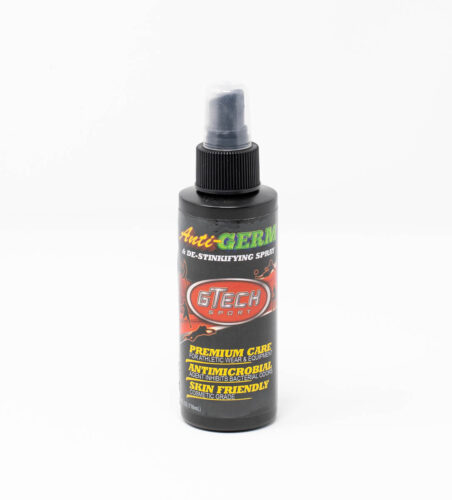It is a scary thing whenever your child sustains an injury. Kids bump their heads a lot as they learn to walk and navigate the world around them. As they grow, they bump their heads on the ground and on various objects. With how frequently this can happen, it can be hard to determine whether your child needs medical attention.
A concussion can be a very serious injury that can cause lasting effects on your child. This is an injury to the brain that causes it to stop working in its normal capacity for either a temporary or permanent amount of time. These can be very dangerous in small children because they are not able to communicate how they are feeling to you. It’s important to know the symptoms of a concussion, so you know when to contact your child’s doctor. Their age can affect the symptoms you may be seeing.
The signs of a concussion in babies:
– Your baby is more irritable than usual.
– Your baby cries when you move his or her head.
– Your baby experiences vomiting.
– There is an interruption in sleeping habits. It can be either more or less sleep.
– Your baby has a bump or bruise on the head.
The signs of a concussion in toddlers:
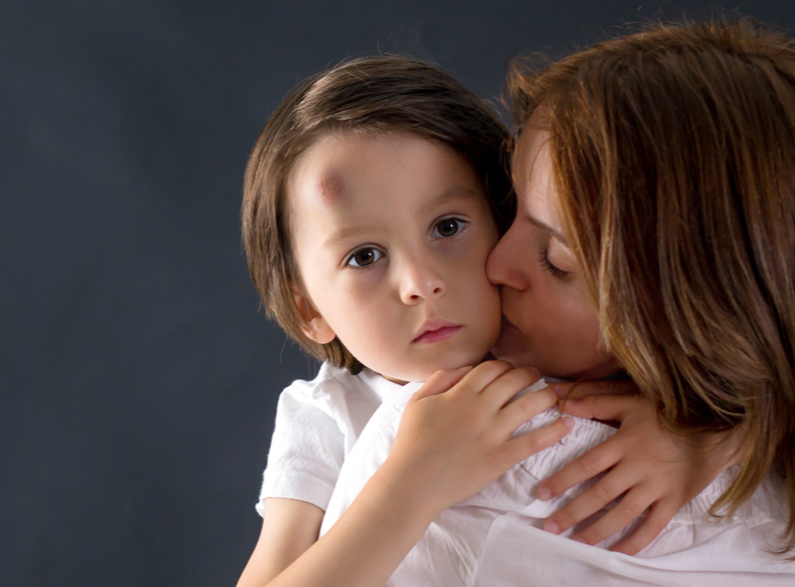
– Your child is older and can tell you about symptoms and that he or she is in pain.
– Your child experiences a headache, nausea or vomiting.
– You notice behavioral changes in your child.
– Your child begins to cry excessively.
– Your child has a loss of interest in playing or certain activities.
The signs of a concussion in children two years old and older:
– Your child may experience dizziness and problems with balance.
– It could affect their vision, causing them to see double or not be able to see as well.
– It can cause a sensitivity to light or noise.
– They may have trouble remembering or concentrating.
– They may be slow to answer questions or forgetful about recent events.
– Your child may experience a change in mood, be drowsy or have trouble sleeping.
When to call the doctor:

– If your child experiences the signs above, you should reach out to the doctor. It’s important to monitor your child for worsening signs and symptoms in the 24 to 48 hours after the injury.
– If your child experiences the following, get them to a doctor immediately: double vision, severe headache, convulsions, unequal pupils, repeated vomiting, bleeding or clear fluid from the ear or nose, stiffness in the neck, weakness in arm or leg, severe personality changes or numbness in the face or extremities.
Follow these recommendations:
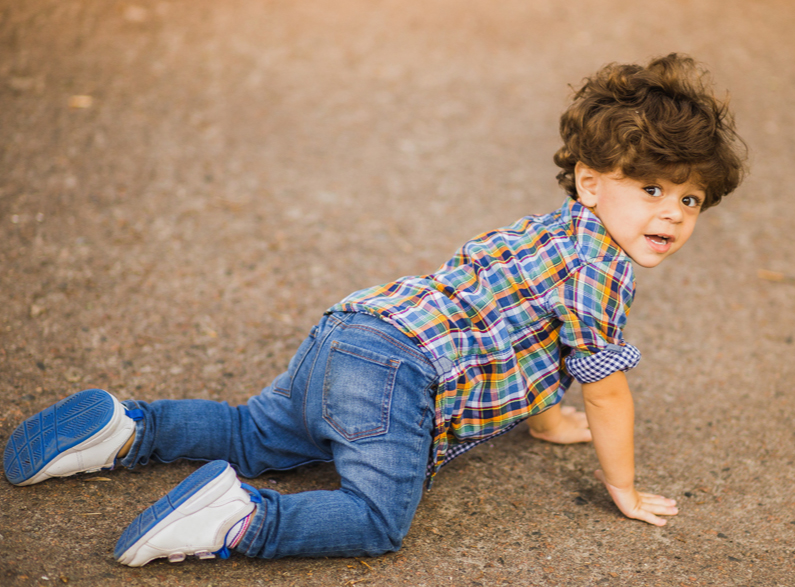
– Your child should not perform strenuous activity or play sports during recovery.
– Do not use ibuprofen or aspirin for a headache in the first 48 hours after the injury. Use only acetaminophen or Tylenol.
– Encourage your child to rest and eat light.
– Use ice packs to ease the pain and sleep in a cool, quiet and dark room.
– Have your child rest mentally as well. They should limit time on the computer, watching television, playing video games, using a cell phone, exposure to bright lights, listening to loud music, driving or going to work. These things can delay healing and worsen symptoms.
What are the long-term effects of a concussion?
– Head trauma can cause epilepsy. The more severe the head trauma, the more likely that this could happen.
– Epilepsy does not usually develop right after the injury. It usually takes months or longer before recurrent seizure activity can happen.
– Medication or surgical treatment can control seizures for many people.
– Early seizures can contribute to the swelling of the brain. This is very dangerous in patients who have experienced severe head trauma.
– Seek treatment sooner to help avoid long-lasting effects of head trauma.
Head bumps and concussions can be very dangerous for children. They could lead to seizures later on, so it’s important to monitor your child after any head injury. While every bump on the head isn’t cause for medical intervention, you do need to monitor your child for the symptoms above.
In Conclusion:
If your child exhibits these symptoms and you think your child may need medical attention, do not delay in getting them evaluated and treated. Trust your instincts when it comes to your child. You know them best and are best able to spot changes in their demeanor as well as their behavior. Follow the instructions above to make sure that your child gets the proper treatment for a concussion. If in doubt, it’s always better to consult with a doctor.
Do you want to learn more about how you can protect your child’s head from falls or traumatic brain injuries? Do you have any questions or comments? Let us know on Facebook, Instagram or Twitter.

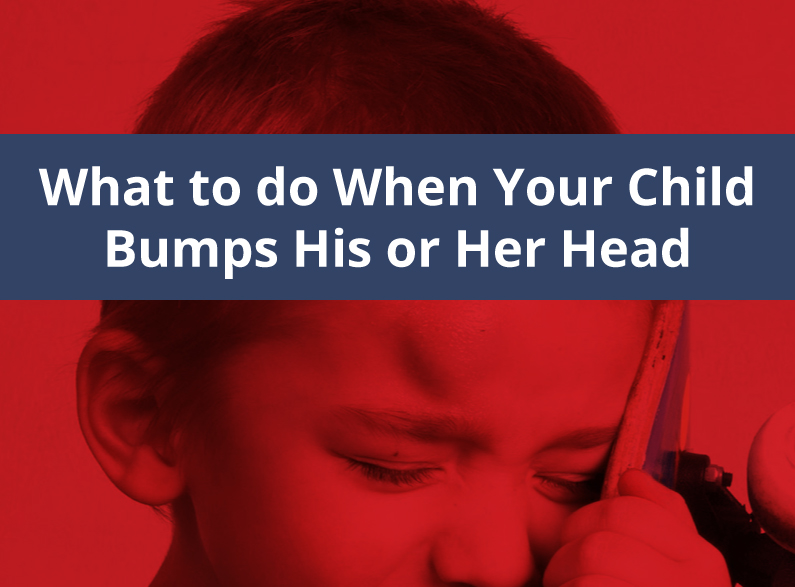
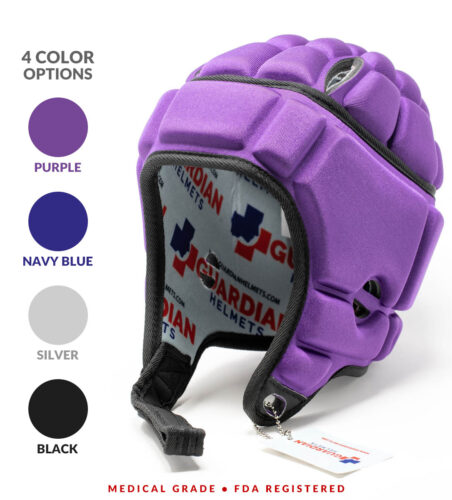 Guardian Soft Special Needs Helmet
Guardian Soft Special Needs Helmet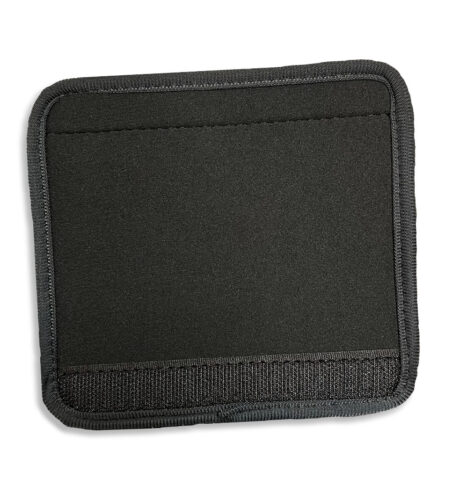 Locking Chin Strap For Guardian Helmets
Locking Chin Strap For Guardian Helmets

